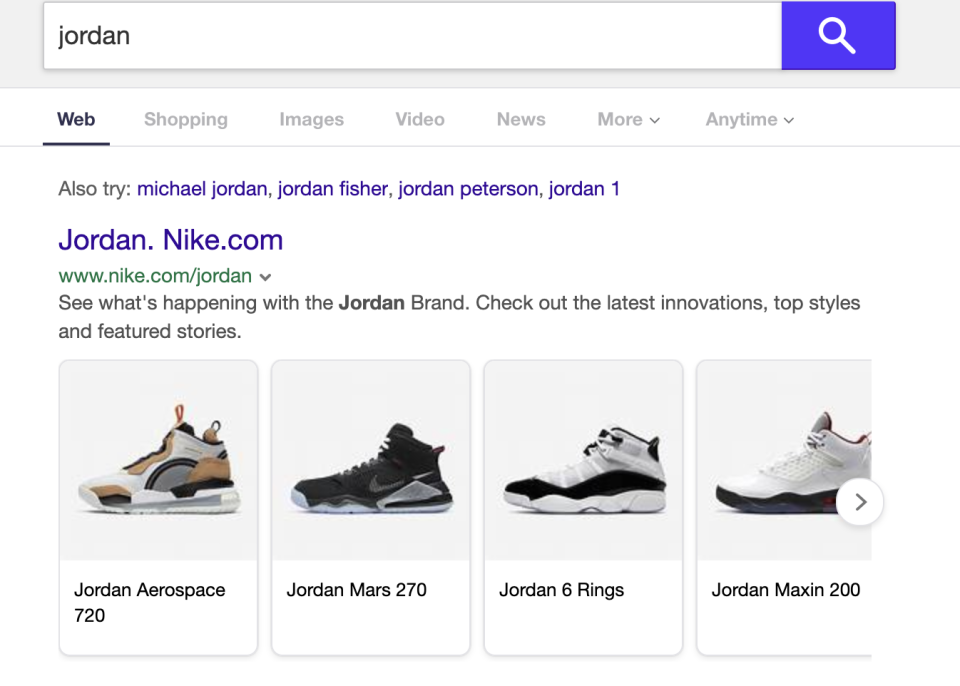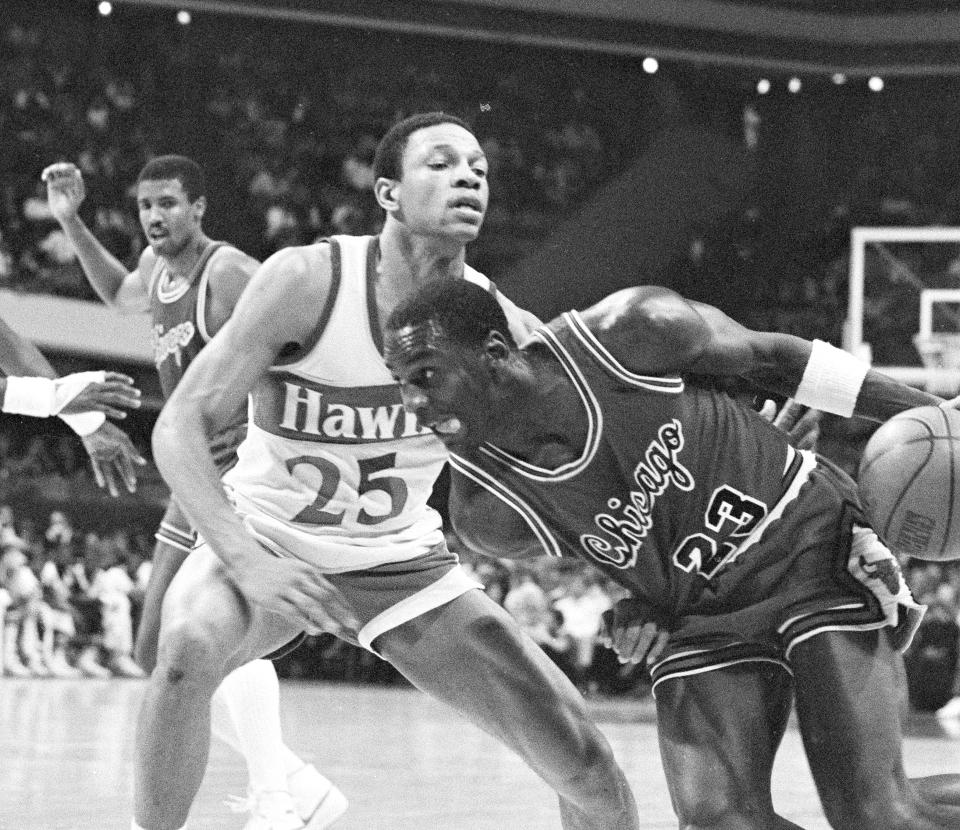I’m a millennial. And I’m why the Jordan documentary is so important
On the day I was born, Michael Jordan played baseball. A day earlier, in Sarasota, Florida, he’d faced live pitching for the first time. I know this, just like countless other Jordan facts, because I looked it up. I skimmed a story. I watched some highlights.
I am one of millions, part of an entire generation of sports fans who don’t remember. Who didn’t experience Jordan’s greatness. I’ve heard the tales. Read the books. Stumbled upon YouTube clips. Worn the shoes. But I didn’t live the 90s Bulls. Never will.
And I, therefore, am why The Last Dance, ESPN’s documentary on Jordan’s 1997-98 season, is so important.
I’d like to consider myself a basketball fan. Perhaps not an obsessive, but certainly a knowledgeable one. I grew up on Iverson’s Sixers. I went through adolescence on the college game and LeBron. In more recent years, I’ve become a full-fledged NBA convert, following the regular season even while moaning about its irrelevance. I could tell you which college or foreign country 90 percent of the league came from. I could tell you about analytics and the CBA.
And yet I settled in on a basement couch Sunday night in Chicago. A few hours earlier, I’d actually driven by the United Center. At 8 p.m., I turned to ESPN. And I learned. A lot.
I’d heard, from dozens of people, for hours on end, about Jordan’s legendary competitiveness. About his unforgiving drive. About his supporting cast. About his fame. I’d even reported stories on him. I’d certainly read plenty.
But on Sunday, I realized I didn’t understand. I realized there’s so much I know about Jordan, but so much more I don’t know. It’s the little things, the games that wouldn’t even make a top 20 of Jordan’s most famous, but that were nonetheless remarkable. That’s what my generation missed. That’s what my generation never knew about. Our supplementary images, the ones that fortify Jordan’s legend, were the out-of-touch executive, and the meme, and, well, this …

Now we have two episodes worth of more relevant images to replace those. We’ll soon have 10. And they’ll change our perspective.
What a millennial learned from Episodes 1 and 2
I’ll be honest: I didn’t know about MJ’s 63 against the Celtics. I was vaguely aware he had the playoff record. But numbers in the absence of context and flavor don’t do basketball justice. I had no idea that was Jordan’s second year in the league. I had no idea it came as a 30-win 8th seed against the 67-win Celtics. I had no idea Jordan was coming off the broken foot and despised minutes restriction. Highlights had never explained to me how unguardable he really was, already, even as a 23-year-old.
That type of context and flavor is what so many 90s babies never got. Only extensive, calculated deep dives could piece together the full picture. Some diehard Jordan acolytes probably took them. Most of us never have.
And even if we did, we didn’t understand how immediately he captivated Chicago. I certainly didn’t know that the Chicago Sting, an indoor soccer team, used to outdraw the Bulls pre-MJ. I didn’t know how much of a circus it soon became.
And frankly, I didn’t know too much about the circumstances entering 1997-98. In a meeting Monday morning, my editor explained that the friction between Jordan and Jerry Krause was widely publicized; that Krause’s belittling nickname, “Crumbs,” was well-known; that his complicated legacy, as both architect and villain, is part of basketball lore.
But among my generation, I’m not sure it is. I’d never heard Jordan call out management at a postgame news conference after winning his fifth title. I’d never heard Krause, a then five-time NBA champion GM, get booed as he received his fifth ring and began his quest for a sixth. That’s how powerful and beloved Jordan was. And that’s what people my age can’t intimately understand.
Bringing Jordan to life

Throughout episodes 1 and 2, there were also smaller moments; sights; sounds. Simply seeing a boyish mid-80s Jordan, as opposed to the 90s alpha male or the revered 2010s icon, up close and personal helped bring the true Jordan to life. So did the letter to his mom, and the stories from childhood. Jordan has become so big, so celebrated, that his backstory, aside from the sophomore-year varsity cut, has largely been obscured. The first fifth of the documentary revived it.
Perhaps more important, though, were random pictures or sequences that cued connections in my millennial mind. When I was 9 or 10, my youth soccer teams used to huddle before every game. “What time is it?!” a teammate or assistant coach would yell. “Game time!” we’d all scream back. I had no clue the Bulls used to do the same thing. (I also don’t know whether the 90s Bulls started that – whether the call-and-response was their thing, or simply a thing they did – but to realize, a decade-and-a-half later, that parts of my childhood unknowingly stemmed from that team was surreal.)
There was even a scene one minute into episode 1. Jordan walks out of a tunnel and onto a court. He’s wearing that red jersey with black lettering and white accents. The one with “Chicago” scrawled in sloppy cursive across the front and a “23” right below. People my age? We’ve seen that jersey on day-drinking frat bros who’ve ordered cheap knock-offs from China. We never saw it on Mike.
Each image like that drags us further back in time, into the moment. Every second of semi-grainy footage or audio makes us feel things we’d been taught but never actually felt. I’d heard “Sirius.” I even knew “Sirius” was the 90s Bulls’ intro song. But I’d never actually seen the Bulls run out to it. Nowadays, NBA pregame intros never stir anything inside of me. On Sunday night, hearing and seeing that, I felt something.
Show don’t tell
Editors and professors always tell writers to show rather than tell. That, for me and so many others, is what The Last Dance is about. Thousands of kids have made GOAT arguments based on numbers and anecdotes. Now they’re able, for two hours at a time, to dip into Jordan’s world, just as they’ve lived in LeBron’s.
A documentary, to be clear, can’t replicate the primacy of experiencing something first-hand. It can’t replicate inescapable thoughts of Jordan on Tuesday afternoons in cubicles or classrooms. It can’t replicate Jordan news or highlights on TV at the top of every hour every night.
But it’s probably the closest I and millions of others will ever come. The median-age American wasn’t alive when Jordan beat Georgetown in ‘82. The median-age human hadn’t yet celebrated a birthday when Jordan won his first title in ‘91. We have heard, and will continue to hear, about Jordan for decades to come. We’ll hear about his greatness from talk shows and from NBA Hall of Famers and from native Chicagoan friends.
Seeing and feeling his greatness, however, is infinitely more convincing.
More from Yahoo Sports:

